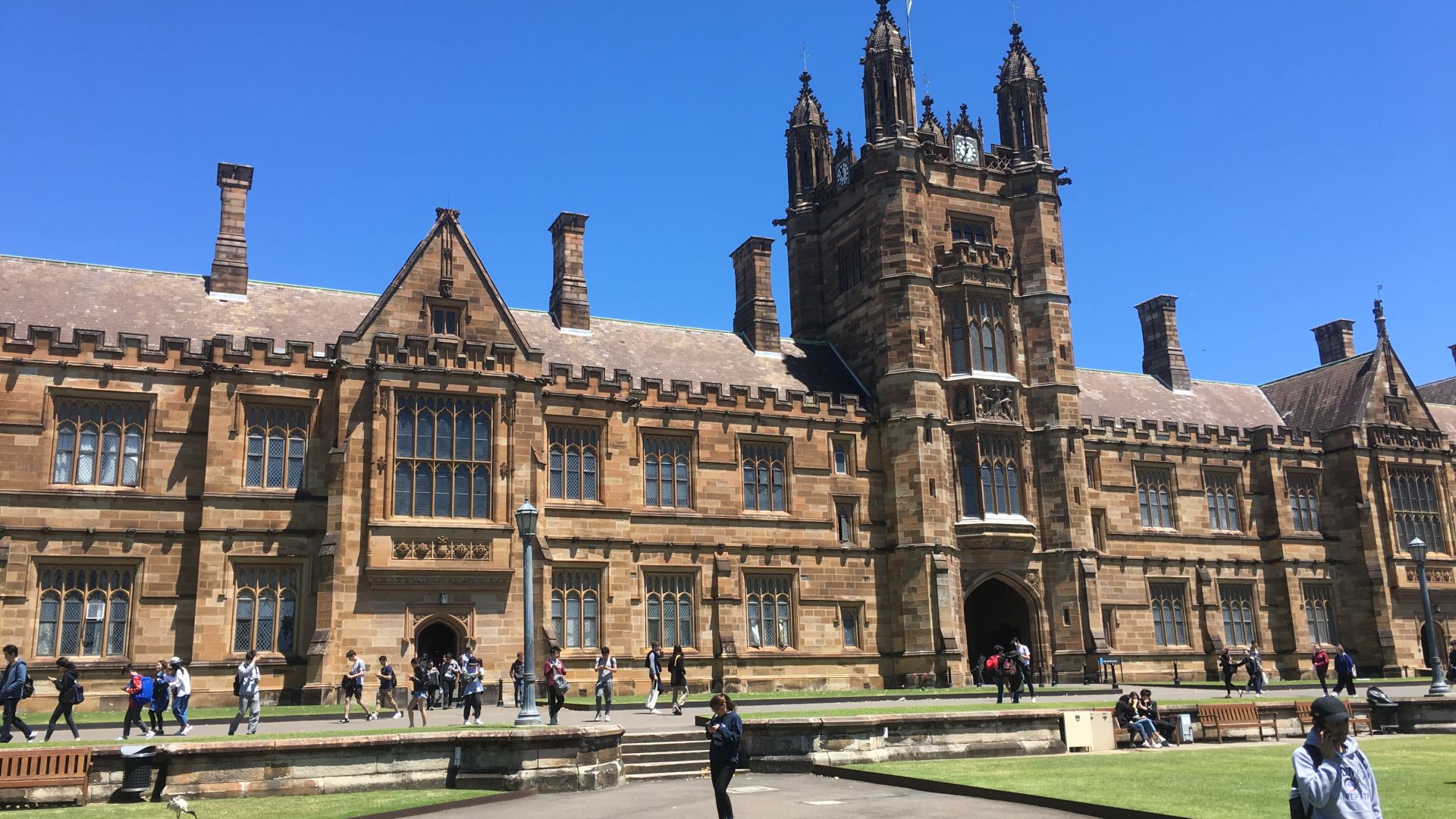Staff strikes are students’ business too
On May 11 and 12, 2022, students and National Tertiary Education Union (NTEU) members picketed at the University of Sydney for better working conditions. On May 18, I spoke to Christine Lai, USyd student and member of the Education Action Group (EAG), for clarity on the context of the strikes and the experience of those two days at the pickets.

Context and demands of the strike
Since 2020, the COVID-19 pandemic has acted as a convenient scapegoat for the shameful corporatisation of tertiary education. University of Sydney's management has subsequently left tutors and lecturers overworked, underpaid, and with their employment attached precariously to a casual contract. Moreover, the Arts curriculum was “standardised” last year under the leadership of then-Dean Annamarie Jagose. What this looked like in practice was the broad slashing of electives deemed "non-essential" and with less than 24 students enrolled. This abhorrent move from Jagose did not come without its damning justification —her belief that "student choice is poor pedagogical practice".
Most concerning is the extent to which the now unsurmountable workload has immediately affected the wellbeing and teaching environment of staff and students alike. The tertiary education workers not included in the mammoth 40,000 who lost their jobs across Australia over the last two years are left to bear the brunt of that crippling blow. This burden includes oppressive requirements such as an obligation for tutors to mark 4,500 words in just one hour. The demands of the recent strikes at USyd included real solutions to such problems of overworking, as well as transition leave for transgender staff members and a rate of pay properly adjusted for inflation.
What's a picket line?
If we're talking about strikes, then what's a picket line? Aren't strikes a matter of simply not showing up to class? Well, they can be, but labour activists can organise to escalate the action taken from abstention to militancy when there's a lot at stake. In this case, labour isn’t only withdrawn from the institution… it’s also redirected against the institution.
A picket line is a physical barrier of people standing with arms interlocked. In the case of the strikes at USyd, they stood along its various entry points to ensure nobody undermined the action by entering the campus. Those who cross a picket line, breaking the strike, are called scabs. To enter the campus, one would have to physically push their way through interlocked arms, blatantly ignoring the picketers' argument for why they should not. In doing this, they answer the question posed by the picket line: 'Whose side are you on? The workers or the bosses?'
What's it like to uphold the picket line?
To put it simply, Christine described the experience as "exhilarating." Despite torrential rain, students and staff formed the picket lines at 7 a.m. and stayed out until 1 p.m. A chemistry lecturer even showed up with a French horn and enough sheet music to go around.
"We've got our umbrellas, we've got our sheet music, and he sets up shop in a little corner at Ross St […] playing union songs while everyone was standing their ground and singing. It was amazing."
Christine also described an instance where a guest lecturer faced the pickets after calling the police, unaware of precisely what was happening. "We told her what we were fighting for, we told her about our arguments and she ended up not only listening to them, but walking away in solidarity. She decided not to teach, not to enter campus." This guest lecturer had become proof of the picketers' capabilities for winning people over. She walked off to the sound of cheers through megaphones and clapping hands. The power of the picket was exemplified: "If we can turn away a guest lecturer, we can turn away anyone."
Why UTS students should show solidarity
If it isn't already clear, I'll state it plainly. The exploitation of university staff has an immediate negative effect on our quality of education.
The incentive for students to stay out of the classroom on a day of action goes beyond the general duty of solidarity — it's within our best interests.
It's a remarkable show of support when students join the pickets, but Christine thinks "there is so much more to say about those who aren't even USyd students coming to join us." The strength of the picket is directly correlated to its numbers. But it’s not as if the exploitations of tertiary education workers only pertain to USyd. Last year, FASS cut UTS salaries by $3.2m. At the time of writing, the UTS Students' Association are calling for action to increase the measly 12% of Students Services and Amenities Fees going to our student union. The corporatisation of universities is a direct attack against us at UTS as well. Nothing less than grand-scale militant action is needed to combat it.
So, what can we do?
The UTS branch of the NTEU recently applied for a protected action ballot to take industrial action for better conditions. At the same time, WSU voted to strike. These steps were taken just after the action at USyd, while the tension was still high. It's up to us to help maintain this momentum in the name of our education and justice for our teachers. Christine can attest that the USyd EAG "would love to return the favour, attending strikes for whatever fights that other Universities have for years to come."
Until then, show up on May 24 for the next strike at USyd.
Look out for the upcoming strikes at WSU. Show up with friends, an umbrella, and your best singing voice. Prepare to learn a lot at the pickets. Prepare to defend the frontline in the name of every student and every tertiary educator in the country. And whatever you do, don't be a scab.

 -
-